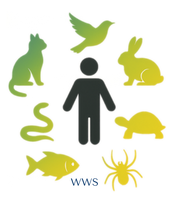Beyond the Classroom: How Animal Care Courses Transform Lives
- Tim Vincent
- Aug 27, 2025
- 3 min read
Land-based colleges across the country are quietly revolutionizing lives through their animal management and care courses. These institutions offer something truly special – programs that do so much more than just teach students about veterinary skills or farm management. They're transforming lives, one student at a time.
A World of Opportunities You Might Not Know Exists
When most people think about animal-related education, they might picture traditional veterinary schools or perhaps basic pet care courses. But the landscape is far richer than that. These land-based colleges offer an incredible spectrum of programs, from foundation courses for complete beginners all the way through to specialized degrees and even Masters programs.
Students can start with absolutely no experience – some have never even held a rabbit before their first day. Foundation and Level 1 courses welcome them with open arms, providing gentle introductions to animal behavior, basic husbandry, and welfare principles. From there, pathways open up through Level 2 and 3 qualifications, T-Levels that blend academic learning with hands-on experience, and eventually degrees that dive deep into animal science, conservation, or business management.
What's particularly striking is how these aren't just linear progressions. Some students hop between different levels, taking time to find their passion. Others might struggle with traditional academic approaches but flourish when they're working directly with animals. The flexibility is remarkable.
More Than Just Qualifications
But these courses aren't just about creating the next generation of animal care professionals, though they certainly do that brilliantly. They're providing something much more profound for many students – a second chance, a new direction, and often a complete transformation.
Students arrive with complex backgrounds. Some have been through the care system, others have struggled with mental health challenges, learning differences, or difficult family circumstances. Many have been written off by traditional education systems. Yet here, surrounded by animals that don't judge and courses that value practical skills alongside academic achievement, these students thrive.
There's something almost magical about how working with animals can unlock potential that other environments couldn't reach. A student who struggles with written exams might excel at reading animal body language. Someone who finds human interaction challenging might develop confidence through caring for livestock or training dogs. The animals become both teachers and therapists, offering unconditional acceptance while students rebuild their sense of worth.
The Ripple Effect
Success builds on success. A student who completes a foundation course in animal care might discover they have a real aptitude for it. They progress to Level 2, then 3, gaining confidence with each achievement. Some go on to T-Levels, combining their passion with practical industry experience. Others head to university, eventually pursuing Masters degrees in specialized fields like wildlife conservation or animal-assisted therapy.
But it's not always a smooth journey, and that's perfectly acceptable. Students sometimes take several attempts to pass their qualifications, facing setbacks and challenges along the way. The difference is that these colleges don't give up on them. There's an understanding that everyone's path looks different, and that persistence and passion often matter more than perfect grades.
A Hidden Network of Transformation
Perhaps most importantly, these institutions are creating a network of opportunities that many people simply don't know exists. While parents might be familiar with traditional academic routes, they might not realize that their child who loves animals could start with a foundation course at 16 and, with dedication, end up with a degree in veterinary physiotherapy or zoo management.
The diversity is staggering. Some colleges specialize in farm animals and agricultural science, others focus on companion animals and veterinary nursing. There are programs in wildlife management, equine studies, conservation, and even animal-assisted interventions. Many have working farms, veterinary facilities, and partnerships with zoos, wildlife parks, and animal charities that provide real-world experience.
Looking Forward
These colleges represent something truly special in the educational landscape. They're not just teaching animal care – they're nurturing human potential. They're showing that education can be inclusive, flexible, and transformative. They're proving that sometimes the path less traveled, the one that involves mucking out stables and bottle-feeding lambs, can lead to the most extraordinary destinations.
For anyone who loves animals, or knows someone who does, it's worth exploring what's out there. These courses and colleges might just hold the key to a future never imagined possible. And for students who've struggled elsewhere, they might just be the place where everything finally clicks into place.
The animals, after all, are waiting with their endless capacity for unconditional acceptance and their remarkable ability to help humans become the best versions of themselves.
Want to learn more? National Careers Service







Comments